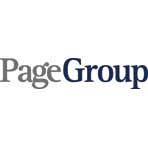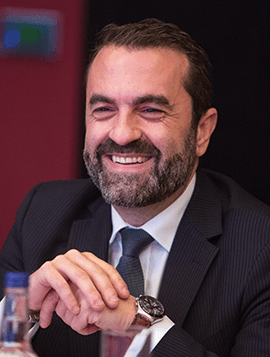
GC: Is your diversity and inclusion strategy primarily driven from internal factors or external pressures?
Jorge Roche (JR): Internal factors. As a global company, we recognise that hiring diverse talent helps us relate to our clients, understand our market and achieve our growth goals. We hire hundreds of employees and help place thousands of permanent, fixed term and temporary candidates every year. We place a premium on D&I to help us attract the best employees and candidates and instrumental to this has been PageGroup’s D&I initiative ‘OpenPage’, which was launched globally and is led by senior management across our different regions.
We have built diversity and inclusion content into all training programmes and have rolled out initiatives regarding gender (Women@Page), parenting (Parents@Page) and sexual orientation (Pride@Page). This includes providing mentoring, maternity coaching, lunch and learns aimed at fathers, and a LGBT+ network. We are also working with our internal resourcing department to ensure greater emphasis is placed on ensuring a wider representation of candidates from racial and ethnic minorities. Ability@Page and Unity@Page will both be launched at the end of the year, and will widen our D&I work to include disability and race/ethnicity.
PageGroup is committed to promoting equal opportunities and inclusion in the workplace, both as an employer and as a provider of services. We firmly believe that diversity and inclusion at work is about recognising and appreciating that every individual is different and we ensure that everyone, whether a candidate seeking work through PageGroup or one of our own employees, is valued and respected and that their selection for recruitment, training or promotion is always based on professional merit.
Each of our new initiatives has had senior level support from our CEO, Steve Ingham, and the executive boards. Our achievements to date are numerous and varied, and we’ve made demonstrable progress in a number of areas.
GC: What is the impact of diversity on the perception of the company?
JR: We recognise that clients are increasingly looking to agencies to contribute to their diversity plans, and we are committed to helping our clients achieve this. Therefore it is essential that we can demonstrate our absolute understanding of the fundamental importance of a diverse workforce and show how we can add value to our clients’ diversity agendas – perception is key. PageGroup is truly dedicated to diversity and inclusion and we want to be perceived as being at the forefront. Our ‘OpenPage’ diversity and inclusion programme’s philosophy is:
‘Age is just a number;
Disability doesn’t hold you back;
Sexual orientation doesn’t matter;
Families and carers come first;
A multicultural workforce thrives; and
Women succeed at work’.
GC: What are the strategic benefits for your business?
JR: As well as helping attract new talent and improving employee engagement, embracing diversity and inclusion in the workplace has proven to have commercial benefits through better alignment with clients, a broader customer base, increased productivity, and improved services and products. Furthermore, people are now choosing their potential employers based on many factors, one of which is an organisation’s D&I policy and practices. D&I is proven to have a tangible effect on attracting and retaining the best and most talented people and, therefore, should be considered as a priority for employers.
GC: Do you quantify the impact of having diversity initiatives, or a diverse workforce? Are there particular KPIs you can point to as a result of your diversity and inclusion initiatives?
JR: Yes we do. We monitor employees’ and applicants’ ethnicity, gender, age, national origin, disability, sexual orientation, education, and religion. Personal data protection laws vary considerably from country to country and the legal department has played a key role in defining the impact on our different regions – currently the UK and Ireland, North America and the rest of the world. Our current monitoring data shows, for example, that PageGroup consistently attracts an equal gender split and that we place an equal number of male and female candidates.
At PageGroup, we monitor both our employees and our candidates via an anonymous online equal opportunities survey. This confidential information is stored separately from our talent management database and provides us with quantifiable data. This information is collated and processed separately from the recruitment database so it can play no part in influencing the recruitment process. By analysing this important data we are able to review our internal policies and procedures, for example attraction, retention and career progression, ensuring compliance with both our legal obligations and also our company goals.
GC: What is the role of the in-house legal team in creating diversity and inclusion initiatives?
JR: D&I initiatives are a key focus of PageGroup and also the legal function. The legal department is an active participant in all these initiatives and has helped the business to work out what it can do to proactively build an inclusive workplace.
We are a diverse team of four qualified solicitors and a trainee, which I think brings a richness to our thinking that we would not otherwise have. A greater blend of perspectives and opinions results in a more innovative problem solving. We have successfully delivered a number of legal workshops to the business on D&I and equal opportunities training, and actively support our different networks. I personally act as the PageGroup’s Diversity Senior Champion and have a leadership role in PageGroup’s diversity and inclusion agenda.
My team supports many different regions where policy and legislation regarding equal opportunities differ. We have helped the business to understand policy context and develop the attitudes and beliefs that will allow them to see the value of working with people who are different to themselves.

JR: Our clients are increasingly looking to ensure that their business partners match their values and commitment to D&I, and PageGroup’s legal department is here to help. We will continue to assist in meeting the company’s legal and regulatory equality obligations, but not only that. As a leadership team, we will endeavour to support the different D&I strategies by making this part of our core business planning and trying to influence equality globally.
We also want to promote the legal department as a positive role model of equal opportunity, diversity and inclusion. This is reflected in the makeup of our team – we practice what we preach! Our team consists of various backgrounds: three different ethnicities and nationalities, four women, four different religions, one LGBT+ and an age range of 15 years. We aim to play a key role in influencing the way PageGroup delivers its strategic plans and will contribute to the development of an open, inclusive and supportive working culture.
GC: The Women@Page initiative has been underway for four years. What have been the main ways that the company has focused on getting women into senior leadership roles?
JR: That’s right – in 2012 we introduced our first global employee D&I initiative: Women@Page. Despite a general near 50:50 mix of males and females, we had an imbalance in senior positions. We were losing very skilled female employees because they felt we could not offer them a successful long-term career.
By focusing on retaining and developing our female employees, we quickly saw an increase in employee engagement and improved employee retention. Our relationships with our clients benefit through the continuity that brings. We now have more women in senior roles. More new mothers are resuming their careers with PageGroup through a better understanding of what we offer. Women@Page has been an absolute success since its inception. Led by Sarah Kirk, our global diversity and inclusion director, the initiative has introduced or improved policies and behaviours, and supports programmes to help female employees continue and grow their careers with PageGroup.
GC: What do you feel is the unique perspective in-house lawyers at PageGroup can bring to promoting D&I?
JR: As I understand it, our job as in-house lawyers is to evaluate a situation and develop a strategy to tackle it. The more diverse a team is, the more likely it will be to provide an innovative solution. So D&I is not just lip service – if we want to stay relevant as a department, we must make diversity a priority. Diversity cannot be achieved without achieving equality first, and the legal team is happy to open up the discussion as we are best placed to talk about the impact of equality and D&I across the different aspects of organisational policy, with a clear and pragmatic approach.
GC: You are working with a number of businesses in promoting practical steps to increasing D&I. What in your opinion is the most important starting point?
JR: We have collaborated with the Professional and Business Services Council (PBSC) members, and have developed a guide to help companies take steps to improve D&I in their workplaces. The most important starting point is a willingness from senior management to embrace D&I and understand the benefits. Senior leaders should commit to D&I for the long term, and should be role models and champions of change, ensuring policies, practices and key performance metrics are in place and reviewed regularly. The senior management at PageGroup is very important to the success of our many initiatives.


